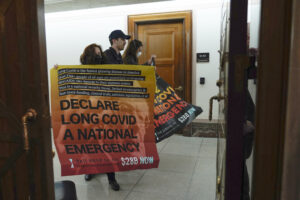Unearned Blessings
Bert Yaffe, who died Monday, was a businessman and a decorated Marine combat veteran and one of the best human beings I will ever know.In thinking about inequality, we tend to focus on practical remedies such as raising minimum wages or supplementing the incomes of the working poor. We have far more trouble affecting that ineffable thing we call luck.
You do not get to choose your parents or where you are born, and no government program can guarantee that you’ll benefit from acts of kindness and generosity that you do nothing to earn.
These thoughts are inspired by the death on Monday of one of the best human beings I will ever know. Bert Yaffe, 93, was a businessman and a decorated Marine combat veteran — he was a tank commander in Guam, Bougainville and Iwo Jima — who carried shrapnel in his body to his last day. He was also a citizen-politician who ran for Congress in 1970 because, having fought proudly in a war he considered absolutely necessary, he came to oppose a war in Vietnam that he saw as a terrible mistake.
A native of Sparta, Ga., who never lost the soft Southern inflection in his speech, he moved after he left the service to my hometown of Fall River, Mass. He had married his beloved Erna and took over a family business. He lost her to cancer in 1977, and her death deepened his engagement with the cause of health care reform and disease prevention. This passion was an integral part of his commitments to civil rights, social justice and peace.
I got to know Bert when I was 16, shortly after my father died. I was already fortunate because he had been a very loving father, and I also had a godfather and uncles looking out for me. Bert was a life-changing bonus.
He had been the local organizer for Eugene McCarthy’s 1968 anti-war campaign and was a prime force behind what became the 1969 Vietnam Moratorium protests. We met when I interviewed him for a high school project on the reform movement in the Democratic Party, and it happened almost instantly: He decided to take me on as an extra son — and, bless them, his own children, Eric, Cheryl and Rob, welcomed me as part of the family.
Bert offered many lessons, one of which is that our view of expertise should never be limited by how many academic degrees somebody has. On health care, he always asked what Sarah Stokes would think.
A public health nurse he got to know as a teenager in the 1930s, Stokes worked, Bert once said, “on the red clay back roads, through the cotton fields and among the broken-down shacks and contaminated wells of Hancock County” in Georgia, which was 80 percent African-American. The love Sarah Stokes showed toward those she served taught Bert to hate injustice.
Bert’s was the only Jewish family in Sparta. A popular kid, he joined the Epworth League, the Methodist youth group, because he wanted to go out with a Methodist girl. While remaining loyally Jewish, he proceeded to get elected president of Sparta’s branch of the League. Only in America.
Later, he wanted to date a Baptist girl and he encountered a form of resistance that may be understandable only to those from traditional Southern towns. “They didn’t care that I was Jewish,” Bert would laugh. “What they couldn’t stand is that I had been president of the Epworth League.”
Faced once with a highly personal feud among some of our political friends in the early 1970s, he sought to mediate rather than take sides.
“The rule is: Make no gratuitous enemies,” he said. “The key word is ‘gratuitous.'” If you stand for something, you will always make enemies. That was part of the price of being principled. What you should avoid are entirely unnecessary fights that advance no cause but create bitter feelings. I’ll always think of it as a singularly important piece of political wisdom.
A passionate believer in individual and community responsibility for promoting better health, he was struck that at least some of his ideas overlapped with those of Newt Gingrich. Bert, a devoted liberal, always looked across ideological barricades for unexpected friends.
But here’s what matters most: The guy who befriended a 16-year-old kid showed me that you can marry a very hardheaded approach to the problems of life and politics with a joyous, spontaneous sense of love. Would that everyone could be lucky enough to have such a second father.
E.J. Dionne’s e-mail address is ejdionne(at)washpost.com.
© 2013, Washington Post Writers Group
Your support matters…Independent journalism is under threat and overshadowed by heavily funded mainstream media.
You can help level the playing field. Become a member.
Your tax-deductible contribution keeps us digging beneath the headlines to give you thought-provoking, investigative reporting and analysis that unearths what's really happening- without compromise.
Give today to support our courageous, independent journalists.









You need to be a supporter to comment.
There are currently no responses to this article.
Be the first to respond.